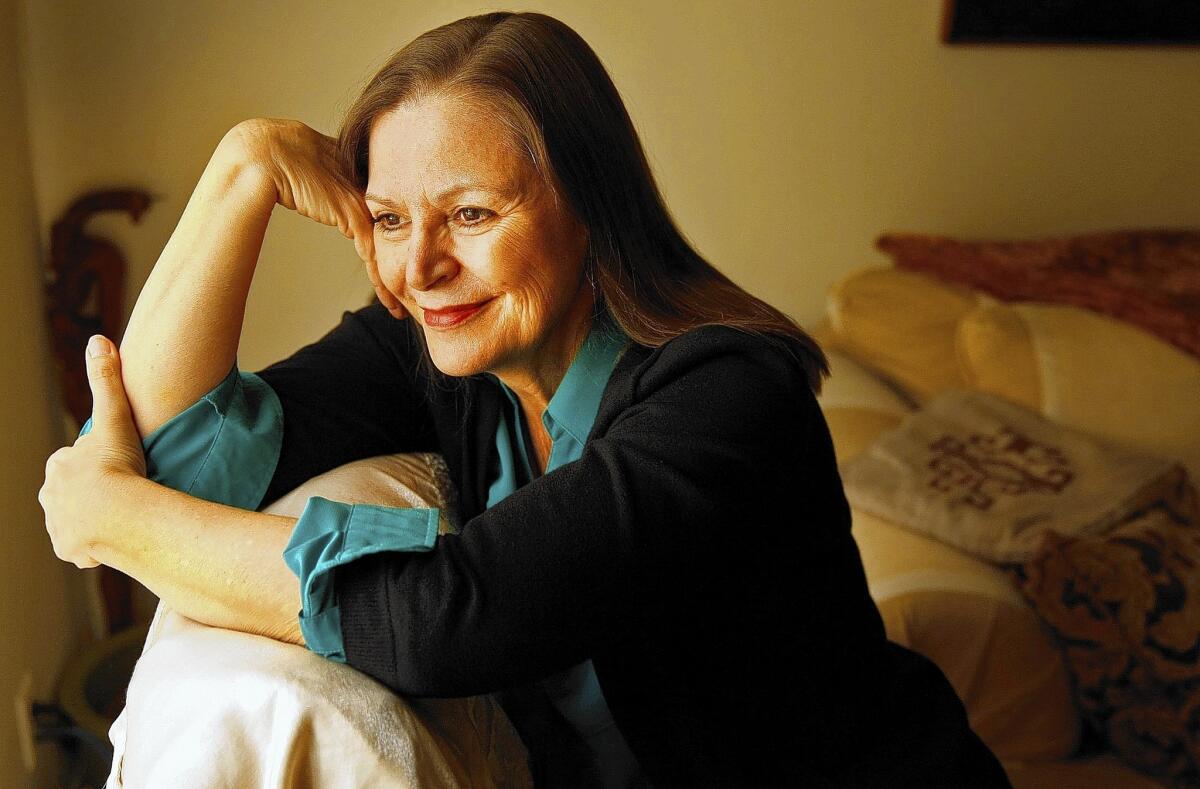Actors, musicians are big beneficiaries of Obamacare

In 2011, actress Lynda Berg didn’t make enough money to qualify for health insurance through her union. And, on her own, she had trouble finding a plan she could afford because she’s a survivor of breast cancer, considered a preexisting condition.
The uncertainty of not having a health plan was stressful and at times expensive, she recalls. A few years ago she fell and broke her hand and elbow and ended up paying $4,000 for her medical care.
------------
FOR THE RECORD:
Insurance for actors: In the May 23 Business section an article about Obamacare in the L.A. entertainment industry gave the first name of MusiCares senior vice president Kristen Madsen as Krista.
------------
But all that has changed for Berg, 59. In March, she went online, signed up for a policy through Covered California, the state’s new health insurance marketplace set up under the Affordable Care Act, and now is getting medical care.
More than most people, workers in the area’s vast entertainment industry are poised to benefit from the federal health law. But as the new law takes hold, the massive overhaul has also stirred up considerable confusion and anxiety over how to navigate a host of new healthcare options.
For decades, artists have flocked to the state, and many have just scraped by while trying to get their big break. According to a study from the National Endowment for the Arts, California has the highest number of artists in the nation.
The same study found that more than 30% of artists are self-employed compared with 10% in the general population, and rates of uninsured are typically higher among the self-employed than others.
In the industry, actors and other movie workers typically get insurance through their unions. But many say they don’t get enough hours or steady work as actors to meet the income requirements to apply.
For instance, according to data from SAG-AFTRA, the country’s largest union for actors, broadcasters and recording artists, only about 15% of members qualify for health insurance through the union.
“When people think Hollywood, they think George Clooney and Meryl Streep, but that’s not the average person in this town,” said Dan Kitowski, director of health services for the western region of the Actors Fund, a national nonprofit that does Affordable Care Act outreach.
The federal law that went into full effect this year made it easier for people to buy health insurance on their own because coverage is guaranteed regardless of preexisting health conditions, and subsidies are available to make premiums more affordable.
That creates a new range of options for people who are self-employed or who may have held on to a job they didn’t like just for the benefits, said Laura Baker, a senior health and benefits consultant for consulting firm Mercer in Los Angeles. One Harvard study estimated that 11 million Americans were stuck in so-called “job lock” — not able to leave their jobs for fear of losing their health benefits.
“It’s certainly a whole new world for some,” Baker said.
Actress Berg, who lives in Beverlywood, now pays a premium of $145 a month for her Blue Shield of California plan. She’s using her coverage to get prescriptions for $5 a month that she was paying more than $100 to fill before. She plans to head to the doctor’s office soon for a checkup she’s been putting off.
“It’s a tremendous blessing to actors and anyone who doesn’t have insurance,” she said. “Even if you get a plan with a large deductible, at least you have that safety net ... and you’re not in debt for the next seven years.”
At a recent workshop at the Actors Fund’s Los Angeles office, actors and artists tried to sort through their new choices.
In a room with a mural of the Hollywood sign on one wall, they asked questions specific to their unpredictable lifestyles: Can they find doctors when they’re on tour? Are specialists, such as throat doctors for singers, covered? Can they dip in and out of union health coverage, or change plans as their income shifts from job to job?
Jorge Bermudez, a percussionist who lives in Baldwin Park, asked what would happen if he couldn’t pay his premium one month. He jumps from gig to gig, and he’s afraid he’ll lose his coverage if he falls behind for a few weeks. He hasn’t had health insurance since he and his wife got divorced several years ago, and he hasn’t been able to get a much-needed hearing aid.
In the past, fluctuating incomes have meant that many artists such as Bermudez, not able to afford their own health plans, have simply gone without when their union insurance or other options lapsed. But now, many can afford individual plans, and are starting to put them to use.
Thousands of Angelenos like Berg signed up for a health plan during Obamacare open enrollment this year. Los Angeles County led the state in sign-ups, with more than 400,000 enrolling through the state exchange. The county made up almost 30% of the statewide total of 1.4 million.
Obamacare open enrollment ended in March, but people who lose their jobs — or get married, have a baby, move or have any other serious change of circumstance — can sign up for a plan year-round. Open enrollment begins again in November.
Krista Madsen, senior vice president of MusiCares, the charitable arm of the Grammys that provides health services to musicians, said that historically, more than 75% of their clients report being uninsured. Not having health insurance has long been part of the life of an artist, even though health problems can have a particularly debilitating effect on artists’ careers.
“If you think about your body as your tool of trade,” Madsen said, “it’s a bigger deal if you have a problem with your vocal cords or with your hearing.”
soumya.karlamangla@latimes.com







